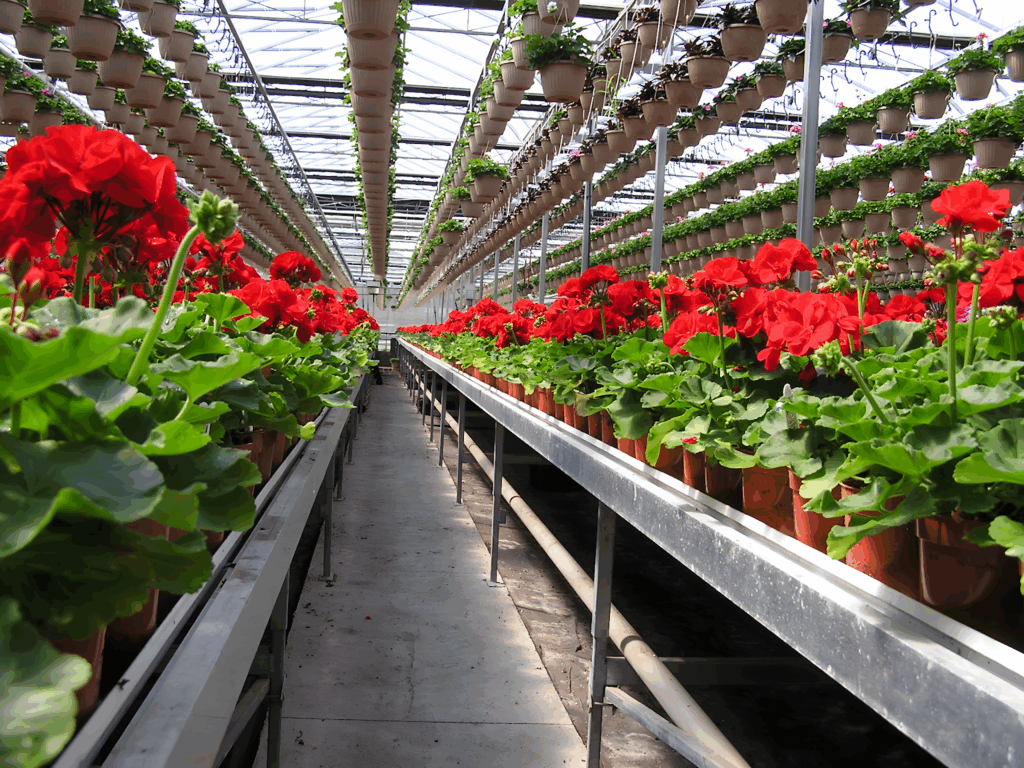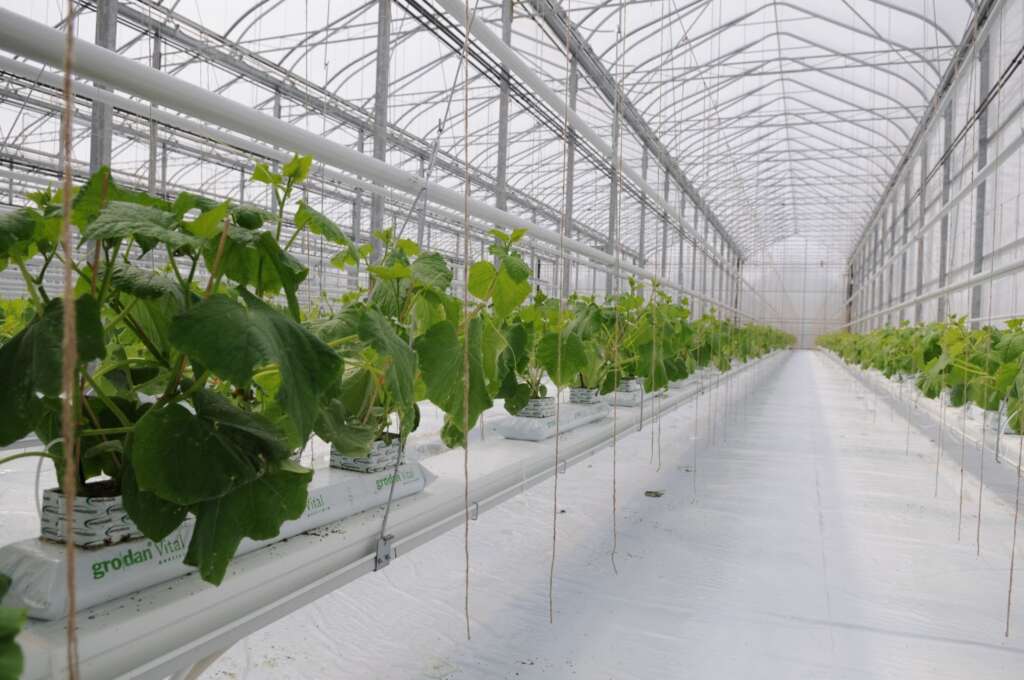When you’re planning to invest in a commercial-grade greenhouse, you’re not just buying a structure; you’re buying an environment for your plants, your business, and your future growth. Choosing the right manufacturer is absolutely key. Here are the factors to consider when selecting a company that delivers quality, reliability, and support.
1. Proven Track Record & Experience
A greenhouse manufacturer with a long track record brings both technical know-how and real-world lessons learned. At GGS Greenhouse Structures, our roots go back to 1979, and we’ve built specialized commercial greenhouses, research/architectural structures, and fabric-covered structures.
When evaluating any manufacturer, look for:
- How many years have they been operating
- The variety of project types they’ve tackled (nursery, produce, research, architectural)
- Evidence of successful installations, case studies, and client testimonials
A company that has built a range of solutions for various climate zones, crop types, and facility scales will be more capable of tailoring a solution to your unique needs.
2. Customization & Application-Specific Design
No two growing operations are exactly alike. Your crop type, climate, and business model all require specialized design. A good manufacturer will ask detailed questions: What crop are you growing? What environment do you need? What is your budget and timeline?
Key things to check:
- Do they offer design consultationsand engineering input?
- Can they adapt framing, glazing, shading, humidity control, and irrigation to your crop?
- Are their systems scalableif your business grows?
If the manufacturer gives you cookie-cutter options only, you may end up with something that doesn’t fully match your goals.
3. High Quality Materials & Construction
The longevity and performance of your greenhouse depend heavily on materials, workmanship, and construction standards. A good manufacturer will use durable framing, high-quality glazing or film, proper sealing, and corrosion protection.
When evaluating:
- What is the frame made of (steel, aluminum, etc), and what is the finish?
- What glazing or covering is used – polycarbonate, glass, film – and what is its expected lifespan?
- How is the structure engineered to handle local snow loads, wind loads, and thermal performance?
- Are fabrication and manufacturing done in-house or outsourced?
- What warranties or guarantees are provided?
Choosing a manufacturer that stands behind its product and uses premium components pays dividends in lower maintenance, fewer surprises, and better returns.

5. Customer Service, Support & Project Management
Building a greenhouse is one thing; running it well is another. The manufacturer should act as a partner, not just a supplier. Ongoing support and expertise, and a team of engineers, technicians, and business professionals working as partners, is a must-consider when deciding what greenhouse manufacturer to go with.
Find out:
- Will the manufacturer help with site selection, permit preparation, foundation design, and local code compliance?
- Do they offer training or hand-off services once installation is complete?
- What level of warranty support and maintenance services are included or available as add-ons?
- How do they manage timelines and project milestones? A good project manager can make the difference between a smooth build and a frustrating one.
Effective structure & well-managed implementation means fewer delays, better hand-off, and a facility that starts producing on schedule.
4. Integration of Systems & Controls
Modern greenhouses are more than just a shell; they’re integrated systems of heating, cooling, lighting, irrigation, shading, and automation. A manufacturer who understands systems integration will deliver a more efficient, higher-performance facility.
When vetting manufacturers, ask:
- Do they handle just the structure, or also support mechanical/electrical/automation systems?
- How do they coordinate design so that the structure and the systems complement each other (for example, ventilationand structural spacing)?
- Do they provide monitoring, performance optimization, or support beyond installation?
This level of holistic design helps you in energy efficiency, crop quality, and operational scalability.
6. Sustainability, Efficiency & Future-proofing
Sustainability is no longer optional; energy costs, environmental impact, and regulatory pressures all matter. A quality manufacturer will design for efficiency (thermal performance, daylighting, heat/cooling recovery) and will be mindful of scalability and the future.
When reviewing:
- Does the design include daylight maximization, shading, ventilation optimization, and energy recovery?
- Can the structure easily incorporate newer systems (LED lighting, automation, sensors) in the future?
- Are materials and coatings chosen with durability and lifecycle in mind?
A greenhouse is a multi-year investment: ensuring it stays relevant, efficient, and adaptable is key to long-term success.

7. Value, Cost Clarity & Truly Turn-key Options
Finally, budget reality and clarity matter. A lower initial cost can hide long-term costs in maintenance, inefficiency, or lack of support. A stronger manufacturer will give clear cost breakdowns and, ideally, a turn-key option.
You’ll want to know:
- What is included in the quote: structure only, systems, foundation, or installation?
- Are there optional add-ons clearly listed (automation, lighting, benches, HVAC)?
- What about shipping, local labor, and contingency for local code upgrades?
- What happens if your operation expands – is the design modular, or will significant rework be needed?
Memory-safe budgeting and clear expectations keep the project on track.
Common Questions & Answers
Q: How do I choose the right greenhouse manufacturer for commercial operations?
A: Look for a manufacturer with long-term experience in commercial greenhouses that offers crop-specific design, has strong construction standards, integrates your systems, and provides full service from site selection to maintenance.
Here are some other top considerationswhen designing a commercial greenhouse facility
Q: What should I ask a greenhouse manufacturer about their materials?
A: Ask about frame materials and finishes (steel, aluminum, coating), glazing or film types (polycarbonate, tempered glass, film), engineered snow/wind loads, corrosion protection, warranties, and expected lifespan of components.
Q: Should a greenhouse manufacturer provide system integration (lighting, irrigation, environmental controls)?
A: Yes. A top-tier manufacturer will either provide or coordinate these subsystems. Make sure they understand how the structure and systems work together for optimal performance and efficiency.
Q: What kind of support do I expect after installation?
A: Beyond installation, you should expect training, maintenance guidelines, warranty support, ongoing performance monitoring, and assistance if you expand or upgrade your facility. The manufacturer should be a partner, not just a vendor.
Q: How important is sustainability and future-proofing when choosing a manufacturer?
A: Very important. Energy costs go up, regulations tighten, and future expansion may happen. You want a design that is efficient now and adaptable later: good daylighting, shading, HVAC design, modular scalability, and durable materials.
Q: What red flags should I watch out for in a greenhouse manufacturer?
A: Watch out for: vague or overly low pricing, no references or case studies, generic designs that don’t ask about your crop or climate, lack of warranty or maintenance plan, no support for systems integration, and low-quality materials.
Q: What is the benefit of working with a turn-key greenhouse manufacturer?
A: With a turn-key provider, you benefit from streamlined management of structure + systems + installation & project management. It simplifies responsibility, aligns timelines, and reduces integration risk.
Q: Can I upgrade or expand the greenhouse later if my business grows?
A: Yes. if you partner with a manufacturer who designs for scalability from the start. Ask about modular framing, pre-plumbed systems, and how upgrade-friendly the design is.
Final Thoughts
Choosing the right greenhouse manufacturer is a decision that impacts your operation’s efficiency, crop yield, durability, and return-on-investment for years to come. By focusing on experience, quality materials, customization, system integration, support, sustainability, and clear cost structures, you’ll be far better equipped to select a partner who can truly help you succeed.
At GGS Greenhouse Structures, we believe in being that partner. With decades of experience, a full suite of design-to-installation services, and an emphasis on durable, efficient, crop-centric greenhouse solutions, we’re ready to help you build the future of your growing business.
If you’d like to learn more, get a quote, or discuss your project,reach out to our team today.

